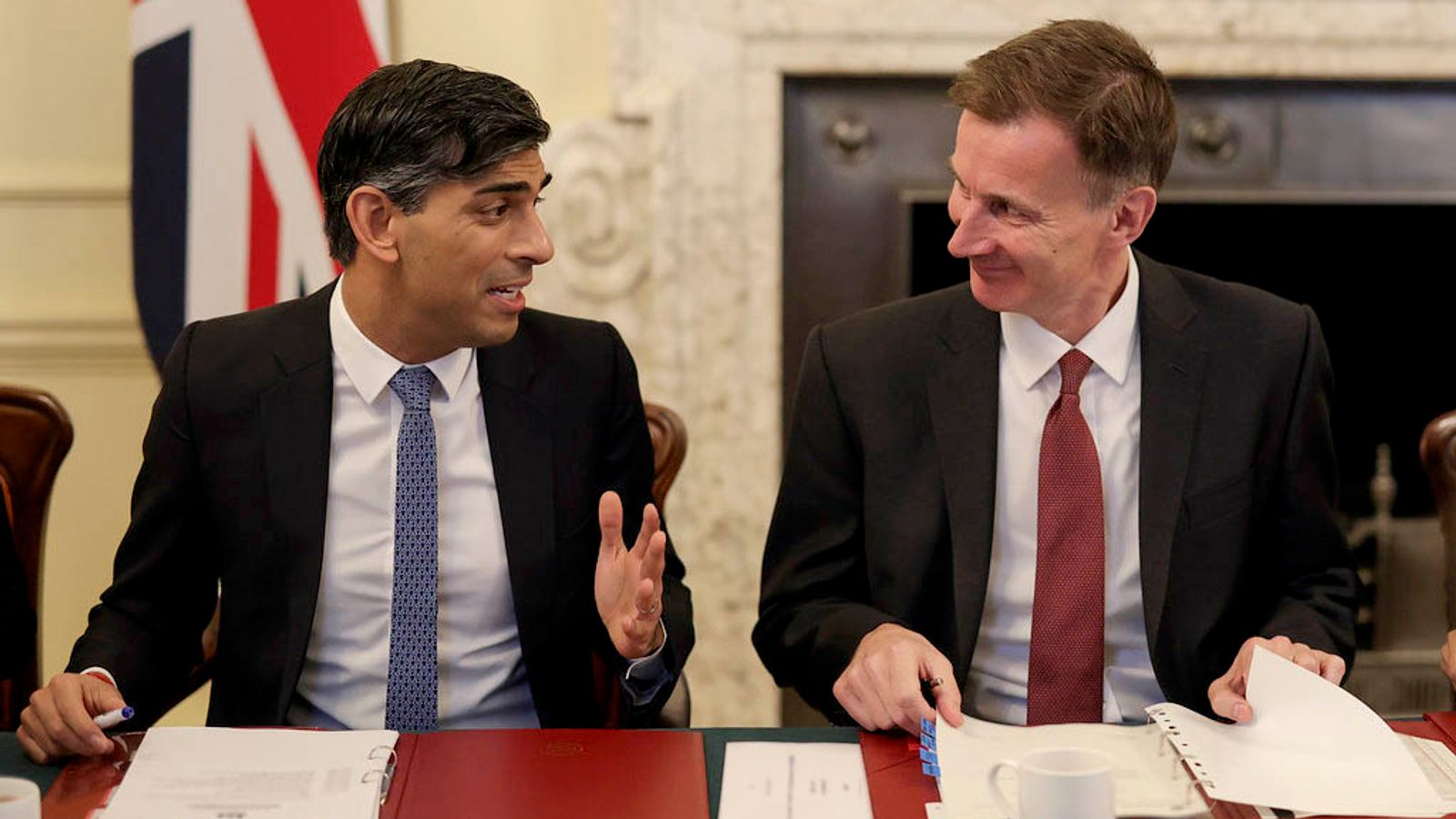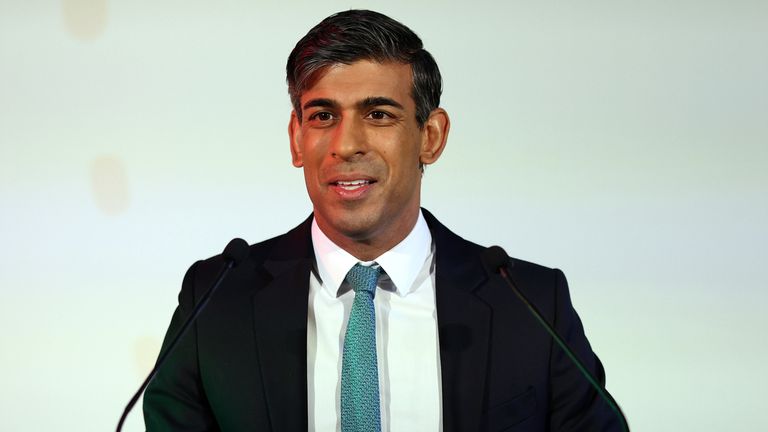For months the chancellor and his team have been billing tomorrow’s big announcement as an autumn statement for growth, the final heave if you like before the big giveaway spring budget.
We were expecting tax cuts for businesses, but were told for months tax cuts for all of us would have to wait. Then this week the prime minister effectively rebranded Wednesday’s fiscal event as the autumn statement for an election.
What was all too difficult against the backdrop of high inflation and a stuttering economy, is now suddenly possible.
Politics news – latest: Professor Sir Chris Whitty says Johnson had ‘unique’ decision-making style
We’re now expecting tax cuts for businesses and personal tax cuts too, perhaps in the form of a cut to national insurance contributions. There’s a record increase in the national living wage.
Ask government insiders and they say the reason for giveaways is that the fiscal outlook has improved, with the economy more resilient than it looked at the time of the March budget.
“Inflation has fallen significantly and we have stronger [tax] revenues because growth is stronger,” says one government figure on the timing of this tax cutting. Growth, they argue, is enabled in part by targeted affordable tax cuts.
But look at the polls and you might detect a very different reason for this new tax cutting zeal. Our Sky News poll of polls now puts the Tories 20 points behind Labour, which is even worse than where Rishi Sunak was at the start of the autumn term – when the Conservatives were an average of 18 points behind.
This PM can’t wait until March to try to give voters reasons to back him. Out of time, the big giveaways are coming early.
Read more:
What key autumn statement terms mean
National living wage to increase
His team insists this isn’t just about politics or the polls, although they are equally keen to frame this a dividing line with Labour, who they argue are performing “cakeism” by planning to spend more and promise tax cuts.
“If you spent any time with Rishi as PM, or as chancellor or during the leadership election this is authentically what he believes, but we didn’t have the economic backdrop behind us to do this,” the government figure added. “But he is the most Thatcherite Tory I have worked with, He does believe it, it’s not just an election call.”
But it is also about politics, with one insider acknowledging that the PM wants to re-cast as a low tax, small state party – quite the feat when you have raised taxation more over this parliament than any other government before and taken the tax burden to a 70-year high – and draw a dividing line with Labour.
Labour is going for “cakeism”, says one government insider.
“They are trying to have it both ways, spending on green energy [up to £28bn a year] and saying they want take cuts. The Conservative path is moving towards having better control over spending and more people in work and Labour want to spend more – so it will force them to pick which direction want to go in and they won’t move in direction of lower taxes.”
But Labour insiders aren’t spooked by what they see as a false divide.
“There’s nothing in what they are saying that’s a problem for us so far,” one said. “Their bigger problem is isn’t what to put in the autumn statement, it’s having a leader who keeps changing strategy. It’s a bit like watching a drunk driver moving down the road.”
Mr Sunak, of course is teetotal, but the lack of strategy leaves the PM “without a political north star at the moment,” says another Labour insider.
“He hasn’t answered the fundamental question of where to do I get my majority from? How do I win?” the insider added.
“After he became leader he should have gone to CCHQ and asked where is my coalition, do I go 2015, do I go 2019? Recent weeks, from hiring back Cameron to attacking the environment show he has no idea about what he’s doing. They’re just trying to get through each week and every decision is taken week by week.”
Conservative backbenchers such as Priti Patel are clear that taxes need to be cut – and quickly. She wants the government to move to higher tax thresholds, cut corporation tax, inheritance tax, business rates, fuel duty.
“This government has got the highest tax take in 70 years.
“I am an absolute advocate of making sure that hard-pressed taxpayers can keep more of their money. And you know, that is through tax cuts. And there are ways in which that can be achieved through targeted tax cuts, such as addressing the conundrum of fiscal drag where so many more people get dragged into the higher tax.”
The chancellor will on Wednesday begin to answer these calls, but voters and his own benches are two hard crowds to please. And after 25 tax rises this parliament, will the tax cuts coming now be too little too late?

